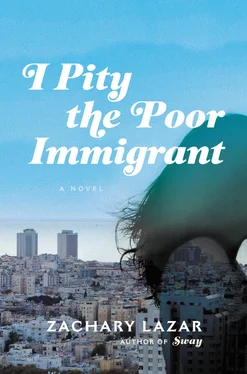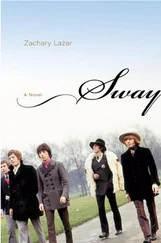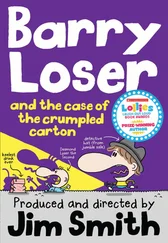“She couldn’t face it,” Teddy told them. “It just broke her heart. What got to her was that she’d never had any children of her own.”
Booker cut the last of the sandwich into two little pieces and brought one on the fork to Buddy’s mouth. What got to her was that she’d never had any children of her own. Of course Buddy had no children of his own either. Of course that was what his stepmother was telling him. She was telling him that he was so obtuse that he’d never even realized that the one basic truth in life was children.
CAREGIVER
“She didn’t like me in her kitchen,” Booker said.
Buddy grimaced and closed his eyes while Booker wiped his face roughly with the wet cloth. “She doesn’t like me in it either,” he said.
“How long they been married?”
“Thirty years. It was secret for a while. He kept it secret for about two years.”
“Why?”
“Why not? That was more the thinking.”
AUDIENCE
His father was waiting by the pool, sitting at an umbrella table by himself with a folded newspaper in the oval of shade. Booker wheeled him out and Buddy did his best to sit up straight, hands dead in his lap, glad that at least now he was thin and not pudgy, not so coddled looking. He wore a blue blazer in the summer heat. His father wore a golf shirt and pale cotton slacks. He had lost all the color in his face and his hair was gray but still thick, still slicked back in the pompadour, his eyebrows full. He didn’t say anything when Buddy introduced Booker. There was all kinds of awkward clatter around the table, and then his father insisted that they sit somewhere else, beneath the veranda where Buddy would be out of the sun, and they made their way over there slowly, Buddy soaking wet beneath his clothes now, his breathing tight. You could feel your skin, you could feel the sweat, even feel the muscle and bone beneath the skin, but you couldn’t move any of it. It was the same as the embarrassed grin that always came to his face. Like the embarrassed grin, the stillness was involuntary but also seemed the truest possible reflection of who he was.
“Teddy will bring out something for us to drink,” his father said. “You didn’t have to wear a jacket. You know that.”
“I wanted to make the effort.”
“It’s July.”
“Where is everyone? Where’s the gang?”
“It’s hot out. They’re inside. I just came out to get some fresh air.”
His father looked off far into the distance, breathing in and out slowly. The way he breathed, it was as if it hurt him in various, small increments. The pupils of his eyes had contracted into two black disks that gave him a helpless, even sightless look at times. He didn’t seem to know what to do with his hands since he’d quit smoking.
Buddy craned his head up and back to try to catch Booker’s eye, but he couldn’t manage it, so instead he gave his sheepish laugh. Now that he’d come dressed in slacks and a blazer, he felt the same stilted discomfort he’d felt when he was ten years old and made to sit for a photograph in such clothes. He heard Booker’s shoes scuffing softly away on the concrete. Don’t say anything. Don’t say that you’re fine either. Just stick to the practical issue, the fifty dollars a day for your basic needs.
“The drinks,” his father said. “How are you going to manage?”
“I’m not thirsty,” Buddy said.
“You need to stay hydrated. What’s his name?”
“Booker.”
“Booker. We’ll get him to come back to the pool. Teddy will send him back.”
RIVIERA
The iced teas sat in their condensation puddles on the white fiberglass table, neither of them drinking, Booker not coming back. There was a feeling of being suspended in time, lulled by the heat and the rilled water of the unused pool. He remembered his father’s penthouse in the Havana Riviera, doves outside on the balcony, his father standing there at the window in his black tuxedo, the view of the Malecón. At dusk, there would be a special intensity of gray light, a kind of anticipation of what would unfold that evening, each evening like the one before it, the waves breaking on the jetty. The fountain with its seahorse shapes, the lobby with its low-slung chairs, the women in white gloves, men in dinner jackets. Even on the top floor, you would feel the vastness of the spaces below — the casino, the Copa Bar — the city’s lights outside the window, the traffic passing before night fell. He remembered they’d had a talk in the dim light about his new fiancée, Annette, and Buddy had explained that she was the right one, as if his father would understand at last and give him his blessing.
WOLF AND LAMB
His father was hardly listening to what he was saying now. What was terrifying and new for Buddy to present was turning out to be just more of the same story for his father. He knew that his father was thinking of the gambling — the gambling would always be with them now. To be his father’s son and to have fallen prey to gambling — the perverse humor of that mistake would never go away. To bet on luck and whim, without skill — to know nothing of handicapping or probability or statistics. To write bad checks to cover the debts, as if the numbers in the statement were just dreams you could make disappear by not looking at them. Twelve thousand dollars in jai alai debts he’d tried to pay off from a bank account his father had set up for him, as if his father wouldn’t notice, the plan so vaporous he decided to withdraw even more, a little extra to take Annette out to dinner that night, stone crabs and prime rib, then to a club to see Jackie Mason. Married to Annette, stepfather to Annette’s son, presumably an adult, a family man — the humiliation of being that defective had become his core, even all these years later. He could mount an argument now — I need fifteen hundred a month because I can’t take care of myself anymore — but the argument lacked force because he had long ago destroyed all his credibility, destroyed it over a lifetime of folly. To look back on the past was to understand that he had never once seen anything for what it was — even his suicide attempt was just a scene from a movie melodrama. Wake up and take yourself seriously. But he had never been able to do that. He had moved with all earnestness through a daydream without even knowing it, ever since he was born, because he was made that way, just as his father was made the other way.
THE PITCH
“They’re going to let me keep the room, but there won’t be any more paychecks coming,” he said. “I can’t do the work the way I am now. I can barely move my fingers sometimes. When it’s like that, I can’t move the chair.”
His father wasn’t looking at him. He seemed to pause, weighing his words, but then it became clear that he wasn’t pausing — he was just letting Buddy’s words sit there bare of consolation, as if after all these years he had finally decided to stop telling his son comforting lies. Buddy saw himself from a great distance then, wilting in the white sun with his thin legs at an angle, polished black shoes on the footrests. He wondered if his father had been testing him in this heat on purpose. Never take your jacket off, he used to say. If you’re hot, then calm down. He looked at the shiny brass buttons on the cuff of his blazer. The failed marriage, the aimlessness, the goofing off. All that instead of preparing for what was happening in his life now.
VERDICT
“It’s hot,” his father said. “I wanted to read the paper outside because your stepmother likes to talk, you know that, so I come out here sometimes because it’s quiet. There was a revolution in Nicaragua yesterday, did you hear about it? Just like the one in Cuba. The markets are off because of it. I don’t know how much you follow the news.”
Читать дальше












